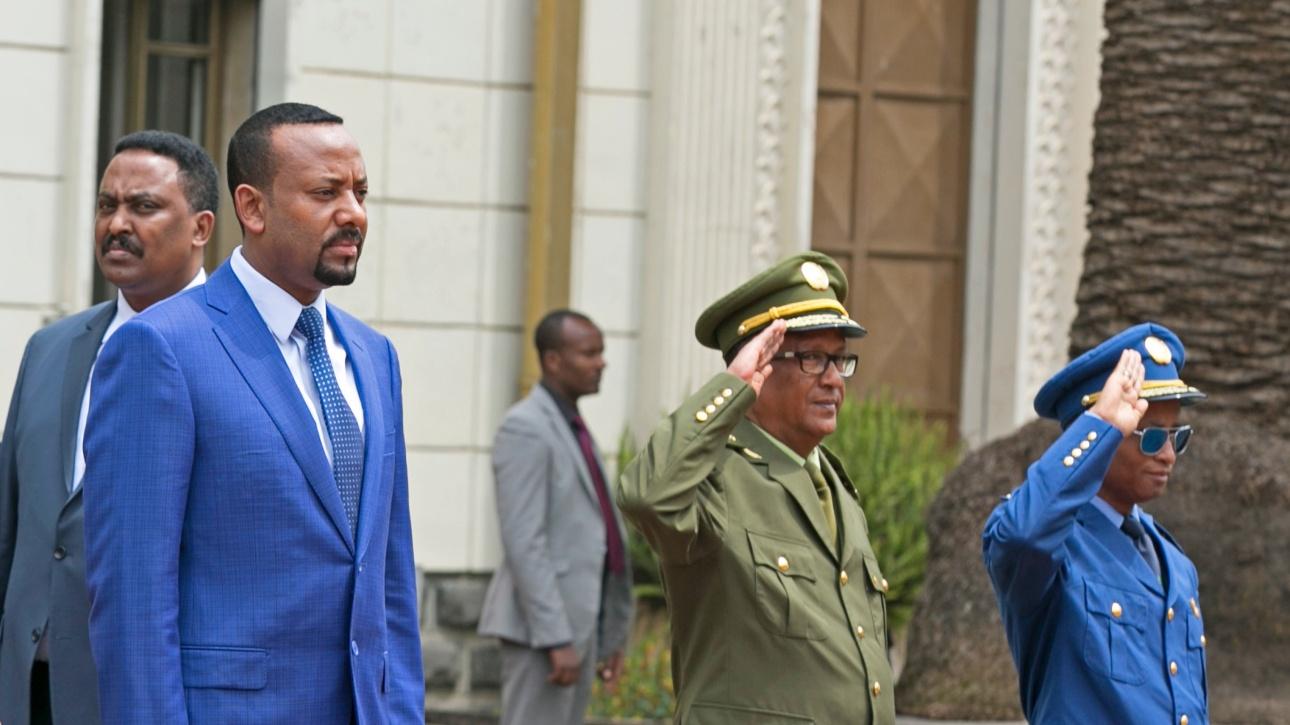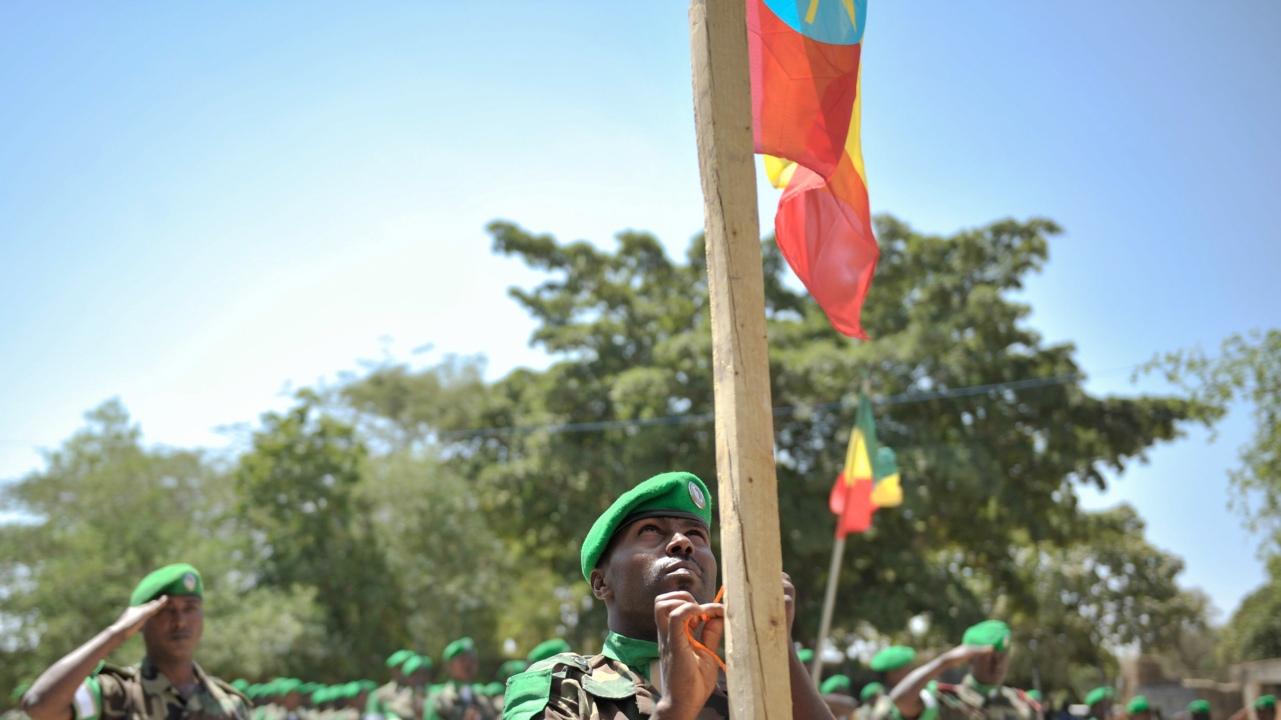Ethiopia’s June 2021 elections have seen Prime Minister Abiy Ahmed badly fail a test of democracy that could have earned him a high place in history. By blocking the hope of moving from a divided past to a shared future, says LSE Fellow Mebratu Kelecha, he has rejected a country shaped with citizen consent and risked further disintegration of the federalist structure.
After two postponements, Ethiopia held its sixth round of general elections on 21 June 2021, during which nearly one in five citizens were prevented from voting. The reasons were the raging war in the northern Tigray region, ethnic conflicts and security problems elsewhere, as well as irregularities and the misprinting of ballots. About a fifth of polling stations were closed, meaning voting was delayed in 110 constituencies out of 547 federal seats, and vocal opposition leaders were either imprisoned or boycotted the elections. In short, the stifling political space limited citizens’ ability to participate in the political process.
Evidently, the election is a ritual process orchestrated to cement Prime Minster Abiy’s mandate; no viable opposition parties were able to compete against Abiy’s Prosperity Party. Oromia, Ethiopia’s most populous region, holds 178 of 547 federal parliamentary seats, but the two main opposition parties, the Oromo Liberation Front (OLF) and Oromo Federalist Congress (OFC), were forced to boycott the elections due to unfair conditions and repression. This left Abiy’s party unchallenged in Oromia, giving it an easy route to the majority, by default taking 178 seats. Abiy’s coronation can be viewed as a result imposed before the elections – a move that not only undercuts the main competitors, but further undermines the possibility of a democracy born in these elections.
To this end, Abiy bought time by unilaterally postponing the elections that were supposed to take place in August 2020, citing health threats posed by the pandemic. The move opened the door for a return of authoritarianism, in which the potential defeat of his centralist party is swapped for the premeditated consequences of the ballot’s postponement, effectively creating an electoral environment devoid of viable opponents. This, in turn, impedes the possibility of moving from a divided past to a shared future that could be shaped with the consent of citizens. For a divided country like Ethiopia, free and credible elections would have been catharsis, helping to dissolve the quagmire of authoritarian practices in response to popular demands.
There are serious doubts that the polls can deliver legitimacy to Abiy’s rule nor stability in the country, as it has been marred by a cascade of crisis. Tigray is experiencing a full-scale civil war with appalling levels of humanitarian disaster, mass killings, rampant sexual violence and famine that threatens the lives of more than 350,000 civilians. This dire humanitarian crisis and raging war is the price the ruling TPLF party in Tigray is paying as punishment for holding elections in defiance of Abiy’s government.
Simply put, the immediate cause of the war is a dispute over Abiy’s unilateral efforts to extend his mandate. Not recognising the mandate’s extension, the TPLF held its own elections, stating that his constitutional mandate expired in October 2020. Abiy also ruled the Tigray elections illegal. Later, this political altercation escalated into a full-scale civil war. Abiy’s supporters justify the war by arguing that the atrocities suffered are justified due to the TPLF’s past human rights violations. Yet the TPLF’s past cannot be an excuse for the summary executions, looting and rape of civilians, nor can war be the proper recourse to address past problems.
Moreover, the war in Tigray, aside from its brutality, is not an isolated incident. Since taking office in 2018, Abiy has consistently demonstrated his penchant for a centralisation of power. Oromia is also suffering brutal repression in the name of countering the insurgent Oromo Liberation Army. Many opposition politicians have been jailed, including Jawar Mohammed, a prominent activist who led the social movement that brought Abiy to power. The repression has intensified since the June 2020 assassination of popular musician Hachalu Hundessa. Monday’s election was held against this unfortunate backdrop.
As such, the trajectory of the current transition and of these elections confirm a rugged political path that laid the groundwork for the resurgence of autocratic rule. Abiy failed the test of democracy, which could have earned him a high place in history. While promises and early reform initiatives have led many to believe that these elections will herald a new chapter on Ethiopia’s democratic path, hope for a democratic transition has now been shattered as the country’s political climate is gripped by violence and division.
The election not only went badly, but also cast a shadow over the possibility of creating a common future for the country. Ethiopia is now facing all sorts of political, social and economic disasters, as well as a humanitarian crisis. The current transition shows the political leadership has failed to take seriously the Ethiopians’ desire for democracy and, therefore, is unable to breathe life into the political system.
Once hailed as a unifier and peacemaker, Abiy is perhaps one of the biggest regrets of the Norwegian Nobel Committee. In good faith, the Nobel Committee considered a bold move to award him the Nobel Peace Prize for the peace rapprochement between Ethiopia and Eritrea. But a year later, with the backing of Eritrea, the atrocities committed in Tigray have cemented Abiy’s legacy as a warlord – one who fiercely resisted the opportunity for peace for the sake of reversing attempts at regional autonomy.
One may wonder what awaits Ethiopia after the vote amid ongoing conflicts. Given his past track record, it is more likely that by taking the renewal of his mandate as a pretext, albeit not earned through fair and credible elections, Abiy could use it to overturn the current federal system and constitution. This risk could unravel the building blocks that hold the federation together and push the country further into the abyss. These problems cannot be averted until Abiy has the courage to swallow the bitter pill: embrace the current federal system or devise an inclusive mechanism to resolve the issues around it.
Moreover, as a multinational country, it is hard to see Ethiopia work as a centralised autocracy. The concern over this issue is also one of the factors fuelling the conflicts between the federal leaders and the political forces currently waging guerrilla warfare in Tigray and Oromia. The desire to outlaw politics that empower ethnic communities’ representation in politics is unlikely to succeed, and it is also undesirable. This is evidenced by preliminary election results from polling stations in the capital, Addis Ababa, supposedly the political base of centralist political parties advocating an immediate elimination of the current federalism and constitution, which has lost almost all seats.
More than ever, Ethiopia is at a crossroads and needs inclusive dialogue and negotiation to find lasting solutions for the reconstruction of state and society. This election could have been a means to this end, offering a non-violent resolution of contentious political issues through dialogue and compromise. This opportunity is now lost forever, but the question remains: can Abiy open his eyes to the inevitable danger of disintegration and give reconciliation and dialogue a chance to preserve the unity of the country and lay a peaceful future? It is unlikely, but let’s hope that he will choose the right path.
Photo: Luncheon with Prime Minister Abiy Ahmed Ali and First Lady Zinash Tayachew | Addis Ababa, 10 February 2020. Licensed under CC BY-NC-ND 2.0.





